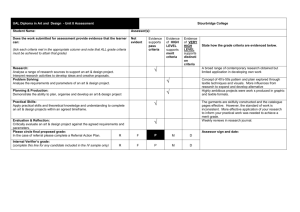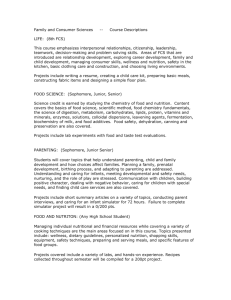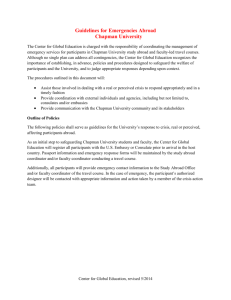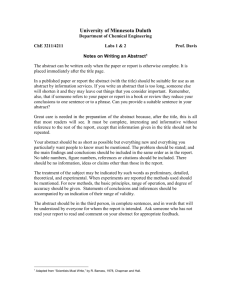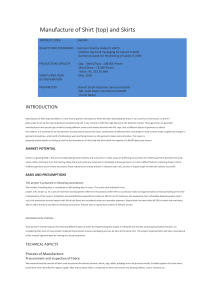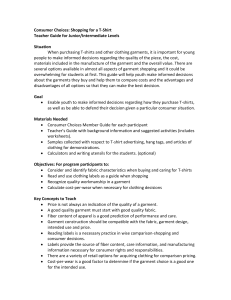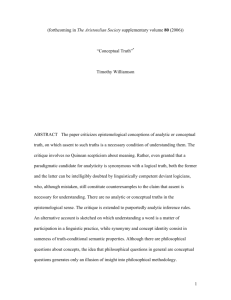The Pleasures of Dress: Vixen`s Seductive Clothing
advertisement
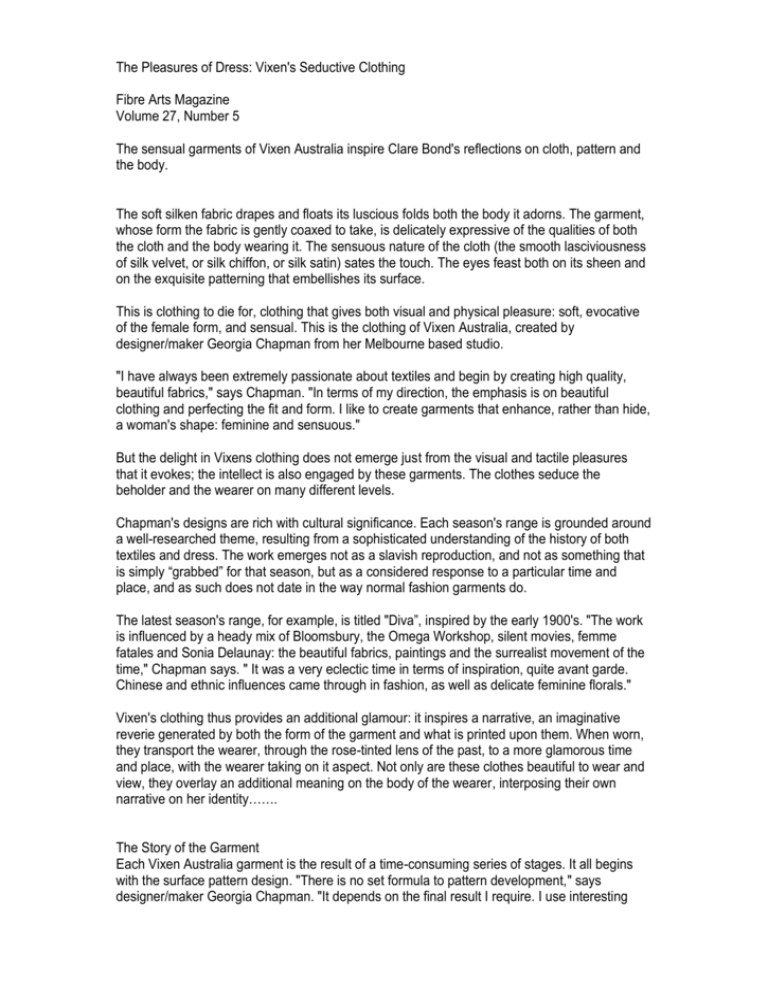
The Pleasures of Dress: Vixen's Seductive Clothing Fibre Arts Magazine Volume 27, Number 5 The sensual garments of Vixen Australia inspire Clare Bond's reflections on cloth, pattern and the body. The soft silken fabric drapes and floats its luscious folds both the body it adorns. The garment, whose form the fabric is gently coaxed to take, is delicately expressive of the qualities of both the cloth and the body wearing it. The sensuous nature of the cloth (the smooth lasciviousness of silk velvet, or silk chiffon, or silk satin) sates the touch. The eyes feast both on its sheen and on the exquisite patterning that embellishes its surface. This is clothing to die for, clothing that gives both visual and physical pleasure: soft, evocative of the female form, and sensual. This is the clothing of Vixen Australia, created by designer/maker Georgia Chapman from her Melbourne based studio. "I have always been extremely passionate about textiles and begin by creating high quality, beautiful fabrics," says Chapman. "In terms of my direction, the emphasis is on beautiful clothing and perfecting the fit and form. I like to create garments that enhance, rather than hide, a woman's shape: feminine and sensuous." But the delight in Vixens clothing does not emerge just from the visual and tactile pleasures that it evokes; the intellect is also engaged by these garments. The clothes seduce the beholder and the wearer on many different levels. Chapman's designs are rich with cultural significance. Each season's range is grounded around a well-researched theme, resulting from a sophisticated understanding of the history of both textiles and dress. The work emerges not as a slavish reproduction, and not as something that is simply “grabbed” for that season, but as a considered response to a particular time and place, and as such does not date in the way normal fashion garments do. The latest season's range, for example, is titled "Diva”, inspired by the early 1900's. "The work is influenced by a heady mix of Bloomsbury, the Omega Workshop, silent movies, femme fatales and Sonia Delaunay: the beautiful fabrics, paintings and the surrealist movement of the time," Chapman says. " It was a very eclectic time in terms of inspiration, quite avant garde. Chinese and ethnic influences came through in fashion, as well as delicate feminine florals." Vixen's clothing thus provides an additional glamour: it inspires a narrative, an imaginative reverie generated by both the form of the garment and what is printed upon them. When worn, they transport the wearer, through the rose-tinted lens of the past, to a more glamorous time and place, with the wearer taking on it aspect. Not only are these clothes beautiful to wear and view, they overlay an additional meaning on the body of the wearer, interposing their own narrative on her identity……. The Story of the Garment Each Vixen Australia garment is the result of a time-consuming series of stages. It all begins with the surface pattern design. "There is no set formula to pattern development," says designer/maker Georgia Chapman. "It depends on the final result I require. I use interesting found objects, I draw, I cut and paste, I use wood blocks, photographs, anything that is going to help me transfer my ideas onto fabric." Each design is comprised of a number of repeats of one or more elements, fitted together. Once Chapman is satisfied with the overall pattern design, the artwork is photographically exposed onto silkscreens, and then the process of combining the pattern with fabric begins. Chapman comments: " Sampling explores many options. Sometimes through our mistakes we discover something quite unexpected and beautiful." Upto 40 different samples can be produced for each desired fabric. After the sample to be used is selected a full length of fabric is hand printed. Next Chapman creates a sample garment. This first sample is done in house and is a collaboration between Chapman, the Vixen producer, the patternmaker and the machinist. In getting the garment right, pattern placement, make and fit all require adjustment. The garment is sent out to the manufacturer to have a production sample made, which gives Chapman an idea of the final cost. The samples for the whole season’s range are shown to Vixen's new and established clients, and production is governed by the orders received. All fabric is produced by hand in house, and the garments made by selected manufacturers. Because the process is labor intensive, and “hands-on”, production is limited (usually either one-of-a-kind garments or editions of 10 to 40), and the resulting garments cost in the vicinity of AU$400 to $1200(around US$220 to $650). The role of the hand at each stage is critical, as Chapman notes."All our processes are done by hand, and in this way we are very close to the product. Because of this, every step is an integral part of the design process.”

